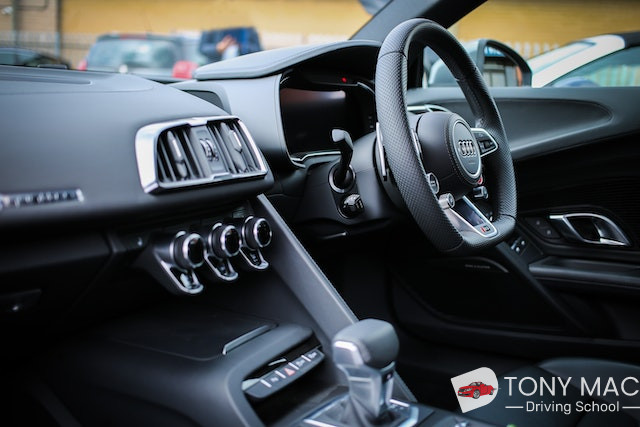The Importance of Driving Practice: Building Skills for Safe and Confident Driving
Driving is an important life skill that promotes self-reliance, assists in transport, and plays a considerable function in social and financial movement. Nevertheless, mastering this ability requires detailed driving practice. This short article digs into the value of driving practice, the elements that add to effective learning, and pointers for striving drivers to improve their driving skills.
Comprehending the Need for Driving Practice
Driving is not merely about controlling an automobile; it encompasses various skills and understanding areas that guarantee safety for the driver and others on the road. Regular driving practice assists people end up being acquainted with different driving circumstances and sharpen their skills through repeated direct exposure. Here are crucial reasons why driving practice is crucial:
- Skill Development: Like any other ability, driving needs time and consistent practice to establish efficiency. Learning road indications, managing the lorry, and understanding traffic laws are essential.
- Boosted Confidence: Regular practice allows new drivers to develop confidence in their capabilities. With each session, they end up being more comfortable behind the wheel, decreasing anxiety during real-life driving scenarios.
- Safety Awareness: Driving practice teaches drivers about potential dangers and how to react to them, promoting safe habits that can prevent mishaps.
- Road Familiarity: Navigating various roadways, environments, and weather is vital for a well-rounded driving skill set. Practicing in different circumstances prepares chauffeurs for real-world obstacles.
- Handling Distractions: Today's driving environment can be chaotic, with different distractions. Repetitive practice assists drivers learn how to minimize diversions and concentrate on the road.
Components of Effective Driving Practice
Reliable driving practice is structured and goal-oriented. It frequently consists of the following components:
| Component | Description |
|---|---|
| Dual Control Vehicles | Specifically designed lorries with controls for both the instructor and student to ensure safety. |
| Simulated Environment | Practice in safe, regulated environments before venturing into real traffic. |
| Mentorship | Learning from experienced drivers who can provide assistance and useful feedback. |
| Practice Tests | Taking practice driving tests to examine preparedness for the real driving exam. |
| Progress Tracking | Keeping a log of practice sessions to keep an eye on enhancements and determine locations that need attention. |
Tips for Effective Driving Practice
For aiming drivers, having a structured approach to practice can yield the very best results. Here are some advised ideas to follow:
- Create a Practice Schedule: Consistency is key. Develop a regular driving schedule that allows adequate practice time tailored to different driving situations.
- Start with Basics: Begin with essential skills like starting/stopping, utilizing mirrors, signaling, and parking in low-traffic locations before progressing to more intricate maneuvers.
- Progressive Progression: Once fundamental skills are mastered, gradually present more difficult scenarios such as highway driving, night driving, and harsh climate condition.
- Seek Feedback: Encourage feedback from an experienced driver to determine locations of enhancement and reinforce safe driving practices.
- Understand Driving Laws: Stay informed about traffic laws and guidelines, as this understanding will boost confident and certified driving.
- Stay Calm and Patient: Learning to drive can be stressful. Practicing under calm conditions with a client instructor can foster a more positive learning experience.
The Importance of Professional Driving Lessons
Engaging in professional driving lessons is a helpful addition to individual practice. Professional trainers offer structured lessons that emphasize safety, legal compliance, and efficient driving methods. Here are simply a few benefits to consider:
- Expert Guidance: Instructors have comprehensive experience and training, enabling them to impart important knowledge to students.
- Access to Resources: Many driving schools provide resources such as handbooks, driving simulators, and practice tests.
- Focused Learning: Professional lessons often resolve particular spaces in knowledge or ability, helping trainees to advance quicker.
Frequently Asked Questions about Driving Practice
The length of time should I practice driving before taking the test?
A lot of states require a minimum variety of practice hours before you can take the driving test, often around 30-50 hours of behind-the-wheel practice. This differs by state, so it is suggested to inspect local requirements.
Can I practice driving without a certified driver?
No. You should experiment a certified driver who satisfies your local driving policies, generally a parent, guardian, or driving instructor.
What should I concentrate on in my driving practice?
Focus on locations such as road indications, lane modifications, parking, defensive driving methods, and dealing with various traffic conditions. Setting particular objectives for each session can help track your progress.
How can I minimize stress and anxiety while practicing driving?
Think about practicing in familiar and low-traffic locations initially. Likewise, bringing a calm and encouraging passenger can help ease anxiety.
What is the very best time of day to practice driving?
Mid-morning or early afternoon when traffic is lighter can be perfect for brand-new drivers. However, practicing at different times can assist diversify skills.
Driving practice is a necessary aspect of ending up being a competent and confident driver. By devoting to a structured practice routine, participating in professional driving lessons, and consistently sharpening skills, individuals can prepare to navigate the complexities of the road. With view it as the priority, investing time in driving practice sets the foundation for a life time of accountable driving.

